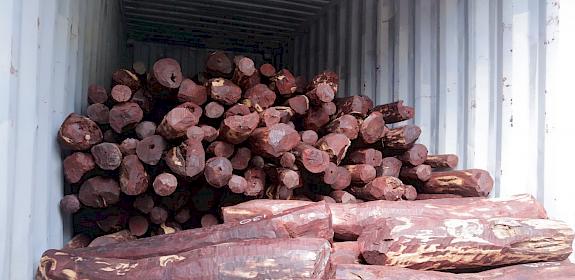Landmark prosecutions but low fines for Critically Endangered tortoise trafficking in Indonesia
Petaling Jaya, Malaysia, 22nd October 2018—frequently trafficked Malagasy tortoises aren’t protected under Indonesia’s wildlife laws, but two recent court judgements are sending a clear warning that there is still a price to be paid for bringing the reptiles into Indonesia illegally.
In two separate landmark court cases, Indonesian judges have given two men caught with Malagasy tortoises prison times and fines for flouting Indonesia’s quarantine law, specifically Article 5 of the Law of Republic of Indonesia No. 16/1992 on Animal, Fish and Plant Quarantine.
These are Indonesia’s first known convictions for an offence involving tortoises which are both Critically Endangered and prohibited from commercial international trade through their listing on Appendix I of CITES[1].
On the 27th August the East Jakarta Court handed Daniel Rooseno a three-month suspended prison sentence, to be served on probation for six months, and a IDR1 million (USD65) fine for negligently receiving two Radiated Tortoises Astrochelys radiata without a health certificate from the country of origin or transit.
On the 4th October the Central Jakarta District Court sentenced Rudy Hartono to a five-month suspended prison sentence to be served on probation for ten months, and a fine of IDR5,000,000 (USD328) for possession of one Ploughshare Tortoise Astrochelys yniphora and five Radiated Tortoises, one of which was dead.
The move by Indonesian authorities to prosecute the two men under quarantine rather than wildlife laws overcomes an Indonesian legal loophole that does not penalise the illegal possession of non-native species, which includes thousands of CITES-listed species.
These cases mark a new beginning for Indonesia in its fight against wildlife crime, and we commend Indonesian authorities for taking this on. We look forward to more cases being investigated and acted upon
Kanitha Krishnasamy, Director for TRAFFIC in Southeast Asia
“But this should only be considered an alternative or stop-gap measure until Indonesia’s laws are amended to include protection for non-native species like the Malagasy tortoises,” Krishnasamy added.
In August 2018, the Indonesian government passed a revised list of protected species under its wildlife protection legislation, but the revision did not include species not native to the country, including the thousands that are regulated under CITES.
Although the cases represented a positive development, the fines and jail times handed out by the courts in both cases were far below the maximum sentences available.
Any person who willfully violates Article 5 of the Law is punishable by a maximum imprisonment of three years in prison in addition to a maximum fine of IDR150,000,000 (USD10,400). Any person, who due to negligence, violates the provisions of Article 5 is punishable by both maximum imprisonment of one year in addition to a maximum fine of IDR50,000,000 (USD3,500).
“The sentences are very disappointing. They will not serve as a deterrent for those well entrenched in the illegal and lucrative trade of this highly threatened species. We urge prosecutors to seek tougher penalties in these cases,” said Krishnasamy.
The Government is appealing the verdict in Hartono’s case.
A TRAFFIC study released just the month before reported 4,985 individuals of 65 different species of tortoise and freshwater turtles on sale in just seven locations in Jakarta over a four-month period. This survey in 2015 found 486 Radiated Tortoises for sale in shops in Indonesia’s capital city.
Ploughshare Tortoises observed for sale in Jakarta were priced between USD7,001 to USD28,003 for an individual and between USD516 and USD7,369 for a Radiated Tortoise.
Notes:
[1] CITES is the Convention on the International Trade in Endangered Species of Wild Fauna and Flora.





